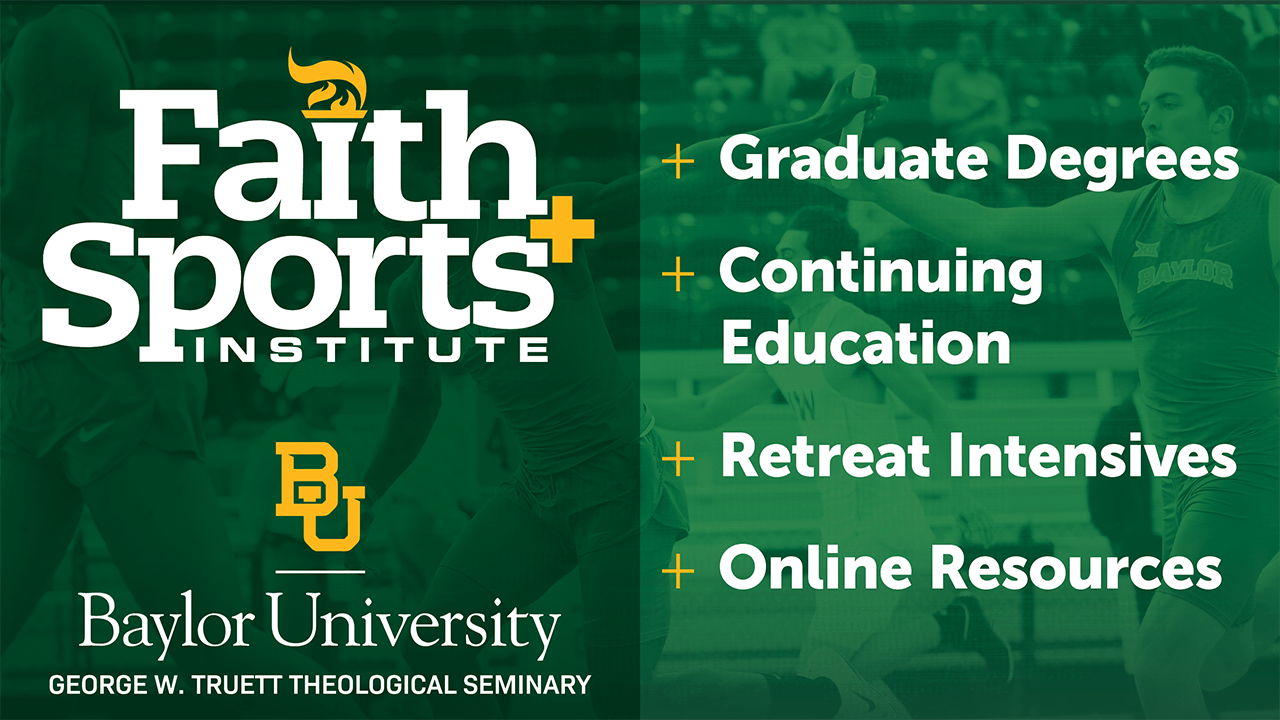“Running the race well.”
It’s a phrase we use a lot at the Faith & Sport Institute. It’s the title of our blog channel and the slogan for our high school summer retreat. It captures our desire to see sports as one part of a life-long commitment to Christ.
Of course, we’re hardly original in using running metaphors for spiritual life. Plenty of Christian athletes, coaches, and sports ministry organizations have found inspiration in verses like Hebrews 12:1 (“And let us run with perseverance the race marked out for us, fixing our eyes on Jesus, the pioneer and perfecter of faith”) and 1 Corinthians 9:24 (“Do you not know that in a race all the runners run, but only one gets the prize? Run in such a way as to get the prize.”). If athletic metaphors were good enough for the Apostle Paul, they’re good enough for us.
But if “running the race well” is an idea I think about often, I’m especially struck by it today. May 8 is the day Ahmaud Arbery would have turned 26. That he did not is because he is a Black man who went for a run.
What does “running the race well” have to do with the injustice of Arbery’s death?
Before answering that, let’s first get historical. I’ve been profoundly shaped by sports ministry in my own life. And as a historian of sports and Christianity, I’ve also spent a lot of time studying sports ministry organizations—these are the places one is most likely to hear athletic metaphors applied to spiritual life. These organizations are certainly racially diverse today, but the truth is that they were birthed in white Christian soil. And most white Christians, including myself, have been taught to see “running the race well” primarily as a metaphor for the inward life. How can I strive to be more like Christ in my heart and in my attitude? That’s the question we emphasize. And we measure our success based on a set of internal patterns and habits. Have I read my Bible today? Have I prayed? Have I limited my curse words?
When I played basketball in high school I subtly reminded myself of this individual emphasis by writing “Audience of One” on my shoes. In the heat of a game I could look down and remember that it was just me and God. Nothing else mattered.
During athletic competition that message can be good. But when we start to carry it over into other areas of our lives, it might be a different story. It can lead us to center ourselves and neglect the world around us. It can lead white people like myself to assume that we are fostering a robust inner spiritual life, that we are “running the race well” and growing closer to God. Meanwhile, there are Black people in the United States who might not feel safe going for an actual run. And we might see that as a tragedy, sure. But not as a problem that truly concerns us.
That’s the thought I’ve been dwelling on today as I lament the killing of Ahmaud Arbery. I can #RunWithMaud as a single act of solidarity, and that is good. But it would be even better if I saw “running the race well” as a call to become the type of person who actively works to oppose the persistence of racism in American society.
Easier said than done, of course. But if we desire that, how can we get started?
Malcolm Foley, writing about Arbery for Mere Orthodoxy, has two suggestions that have been helpful. “We must read our Bibles differently, and we must act in our world differently,” he writes. “We must be reminded that the good news of Christ’s incarnation, life, death, resurrection, ascension and return is personal, communal, and cosmic good news.”
In other words, it’s not just about me and my identity in Christ.
We could also listen to Howard Thurman, the civil rights activist and theologian. Writing about prayer in Meditations of the Heart, Thurman put it this way:
It is never quite sufficient to place all the needs of mankind before God and leave them there. The efficacy of the prayer is often measured by the degree to which the individual is willing to become involved in actually working in the world to meet these needs. A man may share in his prayer his concern for peace in the world and yet, in his own little world, be unwilling to change his private attitude of antagonism or prejudice toward his fellows.
Note that for both Foley and Thurman, the individual experience with God matters in a profound way. But it must not end there. Foley emphasizes reading our Bibles and letting that shape our actions in the world. Thurman emphasizes praying and making sure that it extends deep into our souls and out into our actions.
Praying and Bible reading. Not so different from the spiritual basics I’ve been taught. But it’s the way that we engage in them and the actions we take because of them that can shape the destination we reach.
The sources we draw from and the communities we participate in matter, too. While we are called to fix our eyes on Jesus, the problem is that we are prone to identify Christ with the cultural assumptions given to us by the contexts in which we live. We might think we’re pursuing Jesus and what we’re really chasing is the idol of white, middle-class, American individualism.
Here, sports ministry has the potential to play a positive role. These organizations may have been birthed in white Christian soil. And they may tend to prioritize an individualistic perspective. But sports ministry organizations have always been more racially diverse than most church congregations. Because of this, they can provide a unique setting for multi-racial Christian community to develop and grow.
Listening and learning from the perspectives and history of people of color can help, too. White Christian athletes and coaches should be intentional about this. One of the best places to start is with Jemar Tisby’s The Color of Compromise: The Truth about the American Church’s Complicity in Racism. Another idea is to explore the racial history of your sports context, whether it is a school, a league, a team, or a sports ministry organization.
Most importantly, let’s make sure that when we think of what it might look like to “run the race well,” we include not just individual spirituality but also opposition to the unjust forces that led to Ahmaud Arbery’s death. By God’s grace, with our eyes set on Christ, let’s seek to live in ways that not only lead to our flourishing, but also to the flourishing of others.






